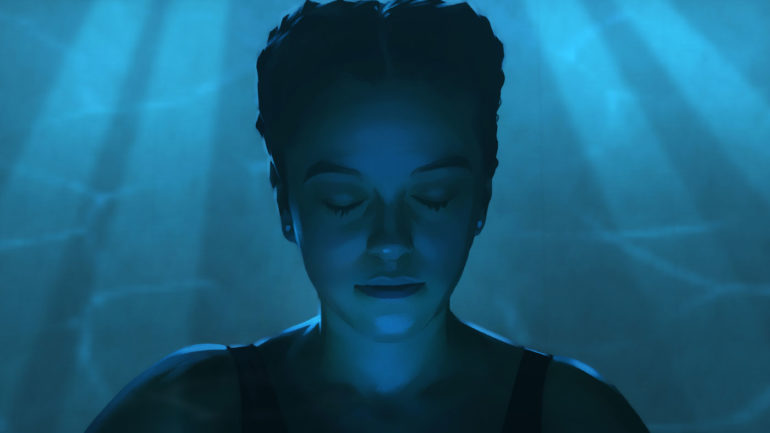For a game about family bonds, As Dusk Falls is fairly true to its genes. As former Quantic Dream staff, the creative is certainly familiar territory. It mightn’t have the trimmings we’d expect from a big-budget first-party narrative epic like Detroit: Become Human, but what it does do is capture the marrow of that experience in strong storytelling, an engrossing concept, and characters that run the gamut from sympathetic right through to rotten—right down to their soul.
After reading the elevator pitch for As Dusk Falls, it sounds like it’s trying to be the Boyhood of games—sort of. It doesn’t have an insane gimmick like being developed over an era, but with a focus on familial bonds and a story spanning three decades, it’s certainly an ambitious title, even when compared to Quantic Dream’s recent offerings. Obviously, there are shortcuts taken that we wouldn’t expect David Cage’s mob to make, largely in production value.
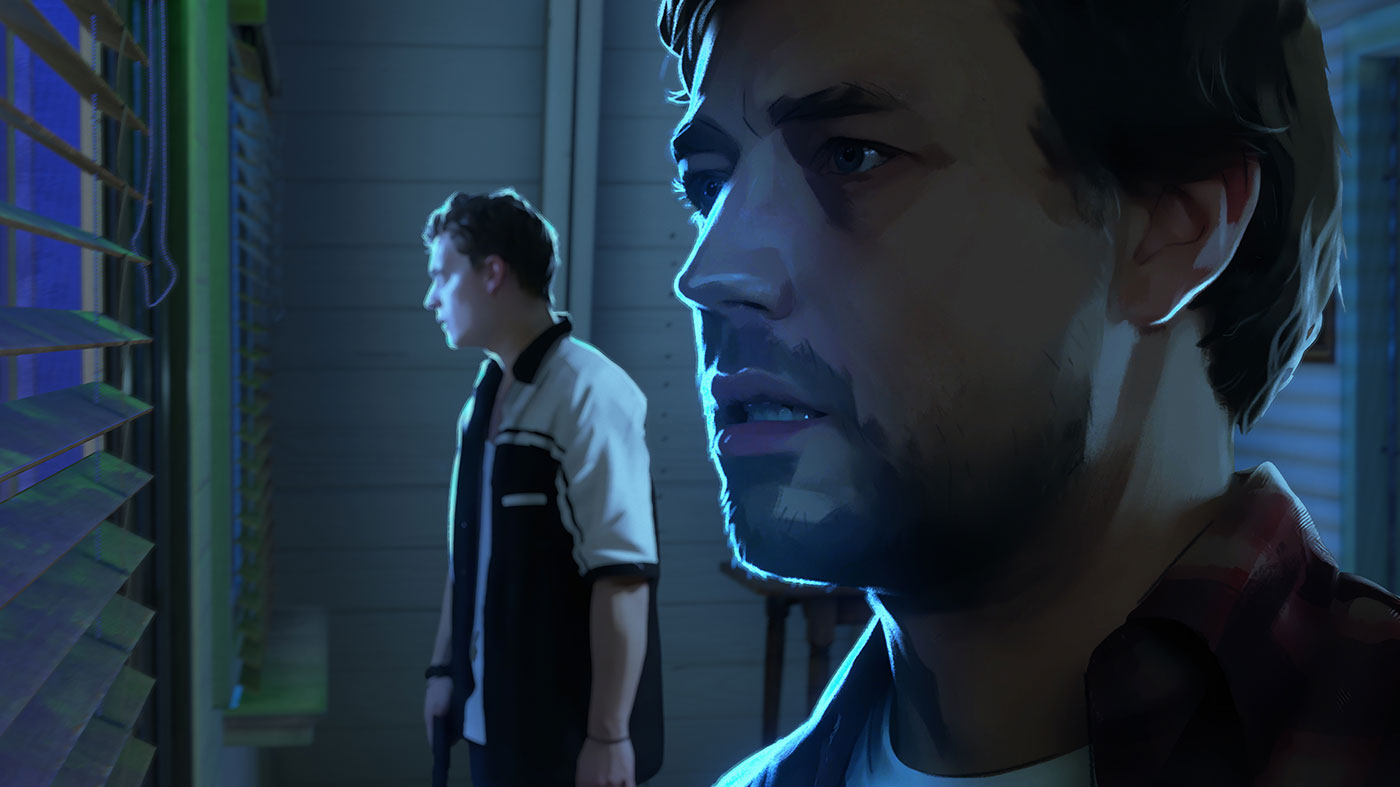
But if the aim is to craft honest, real stories then Int./Night might already have a leg up.
The catalyst for the story in As Dusk Falls is the chance collision—literal and otherwise—of the Walker (Vince, his wife Michelle, and their daughter Zoe) and Holt (three brothers Tyler, Dale, and Jay) families. The former is uprooting and searching for a fresh start across the country in Missouri, while the latter has a date with destiny as their blue pick-up will, before long, be the subject of an all-points bulletin after they empty the office safe of the town’s sheriff in an effort to settle some bad blood.
Although I only got to sample two chapters, I felt like the pacing in particular was phenomenal. The narrative team isn’t afraid to leave a number of tense uncertainties unresolved, opting to explore other threads—at one point they cut away from a present-day stand-off to fill in the blanks on the distant feelings between Vince and Michelle and it works to tremendous effect. Even if it’s clear the stakes aren’t always there, for example, a much older Zoe narrates the game’s prologue so she’s never going to be in mortal danger, it’s clear that even the trauma from the Desert Dream Motel will cause ongoing fractures in the lives of these characters.
The two opening chapters alone present As Dusk Falls as ‘Emotional Damage: The Game’.
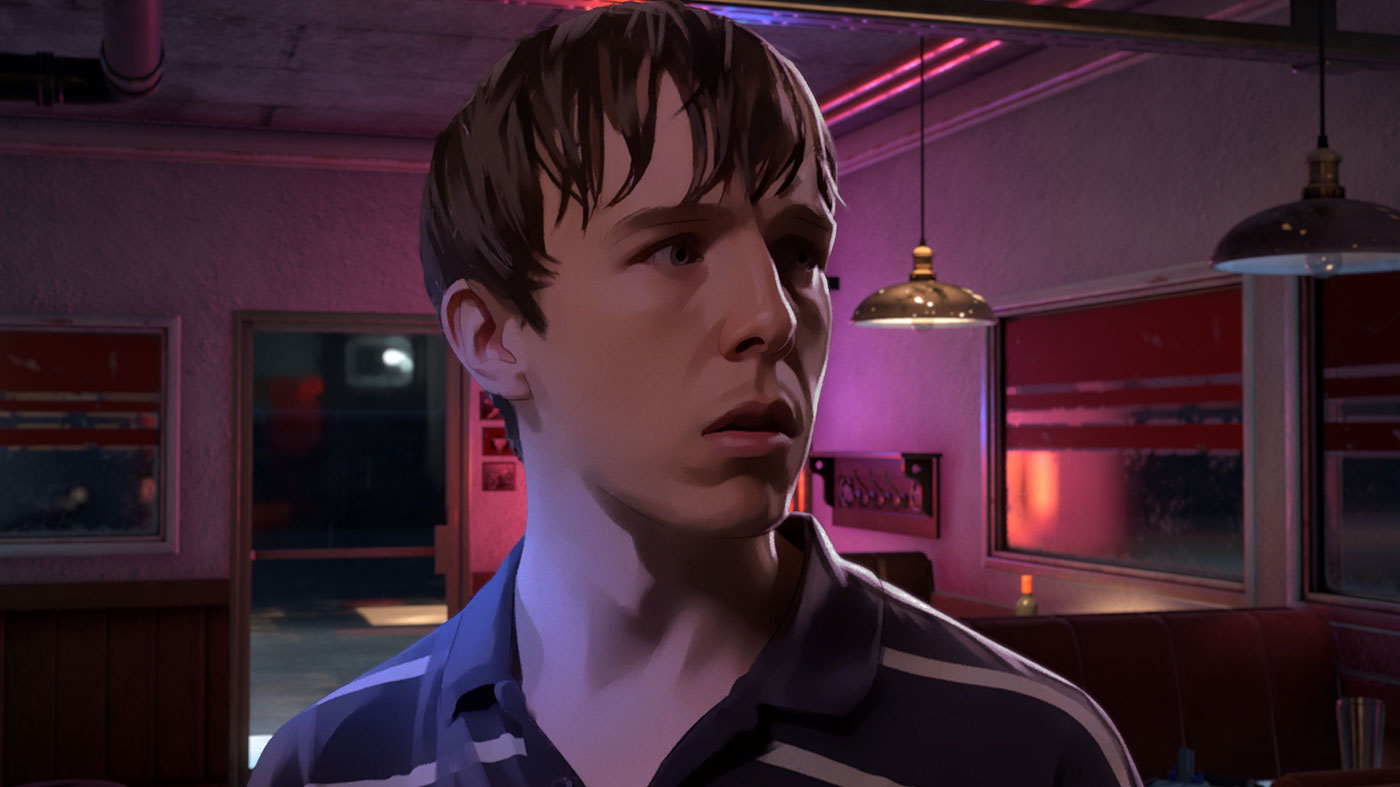
As is standard for games like As Dusk Falls, the narrative is a rich tapestry of branching possibilities. And although it’s great that the game offers these divergent paths that offer hints at smaller stories within the bigger picture, it feels like window dressing a lot of the time. I’m, of course, basing this off of two hours of the game, but having explored a lot of different variations, I found that these predetermined and inevitable story beats are, as they always have been for games like this, a major pitfall that leads most to question the “player’s choice”.
As Dusk Falls plays out like any of these narrative adventures. Your job is to determine the narrative path you’d like to explore and react to fulfil the quick-time event when the moment calls. Most decisions are mundane and serve no real purpose beyond colour, but every so often a choice bearing some gravity will be forced upon you. Your time to react feels briefer, the screen starts to shake—it’s an exercise in tension. It’s at these moments that the plot branches off based on what you choose. Interestingly, despite my waning reaction time leading to a botch or two, I never encountered a catastrophic failure in As Dusk Falls. I certainly didn’t help particular situations, but the game never once used death as a consequence which I found refreshing.
Of course, it’s entirely possible I just simply didn’t trigger one.
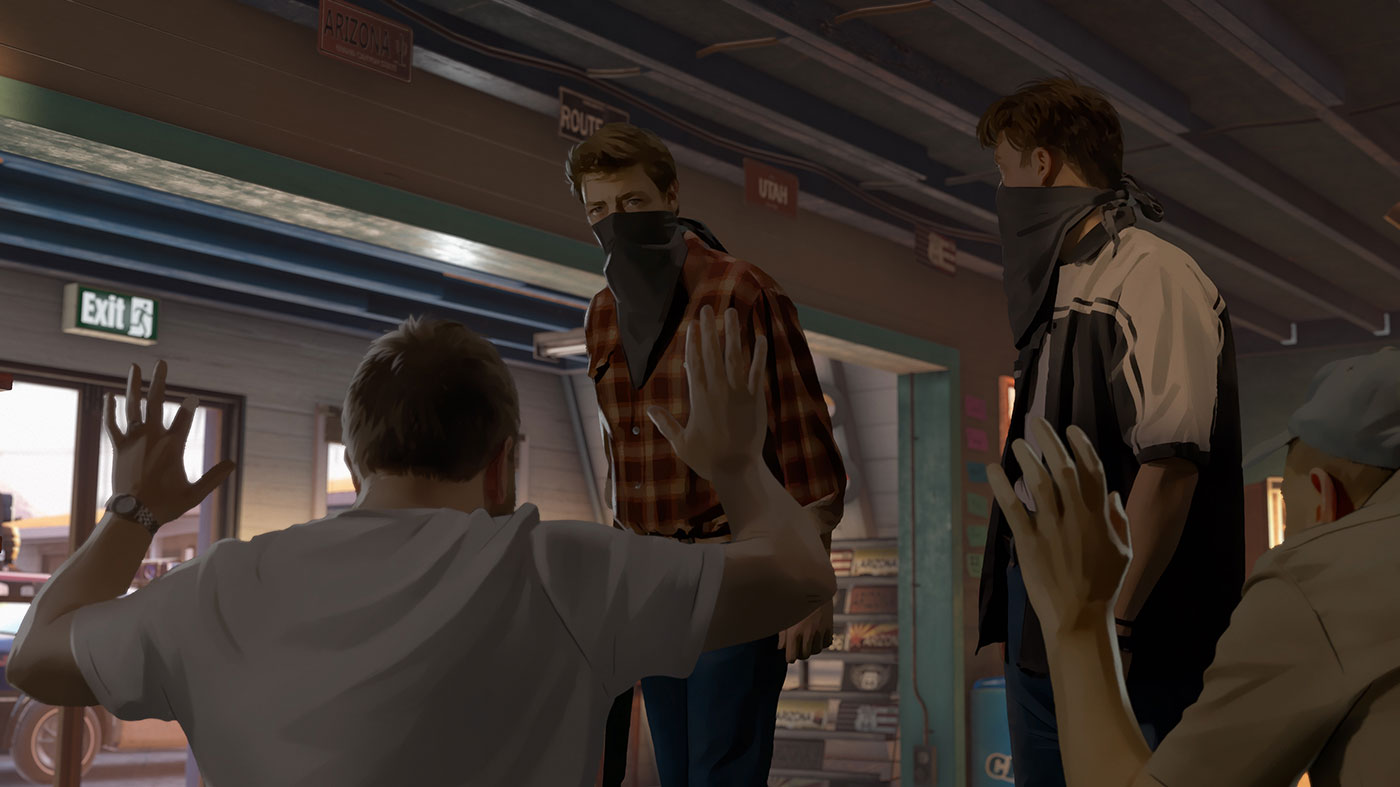
Although the gameplay won’t feel new or groundbreaking, it does somehow feel worse than its contemporaries. Sure, there are quick-time events—a staple of any game like this—but I felt they were far from intuitive. Simple actions like flicking an analogue stick or mashing one of the face buttons are reasonable, but for some reason, I found the expectation that I should click the analogue stick repeatedly both unnatural and jarring. Plus the UI itself is clunky and annoying to use, having to guide the stick to hover over a particular dialogue choice—rather than simply assigning said choices to face buttons—feels like a deliberate attempt to artificially ratchet up the tension. Only that doesn’t work, because the war is against the controls at that stage, not the morals of the situation as they should be.
As Dusk Falls will have a companion app at launch so that it’s easier to make decisions, although I wasn’t able to find that app during this preview period so I expect it isn’t out yet. I do hope that might serve to negate a few of the issues I have with how the game controls because, with those out of the way, I expect the narrative might flow extremely well.
I’m also eager to explore the game’s multiplayer options which, like other recent releases, lets you party up with a large group of friends to make your way through the narrative. Like a devil on my shoulder, I did have my wife instructing me on what chaotic decisions to make, and let’s just say Alfred was right, some people do just want to watch the world burn.
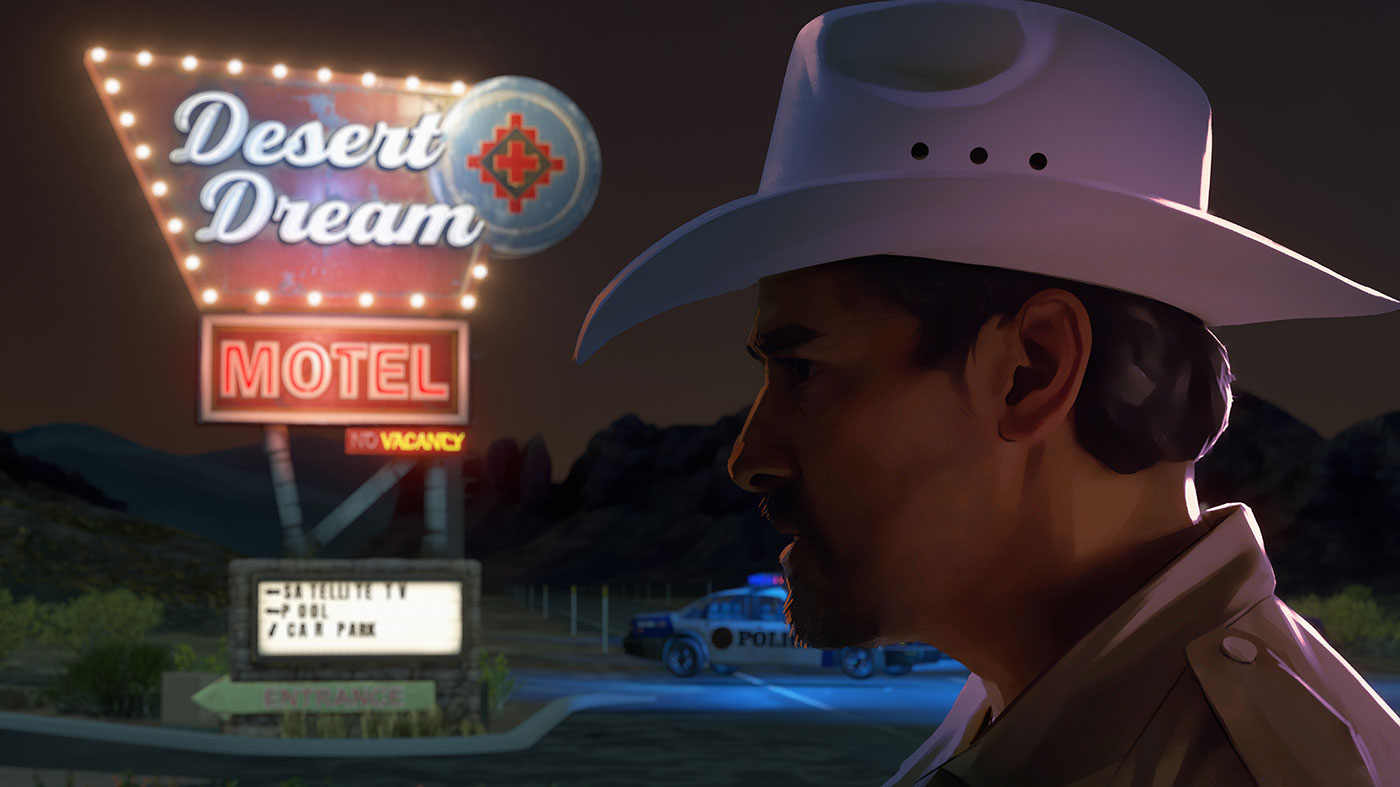
As I alluded to earlier, As Dusk Falls doesn’t quite have the production budget of something like Detroit, but it circumvents that issue with a lot of poise. I think the visual identity the game establishes early is pretty striking. It lands in the middle ground of standard visual novel and animated storyboards, where static character sprites—which appear to be real footage of the actors touched up digitally by hand—function on backgrounds that often feel alive courtesy of things like the falling leaves of deciduous trees. Caroline Marchal, the game’s lead, described the game’s look as being “at the crossroads between a high-end graphic novel and film” and I believe that’s certainly apt.
I think it’s exceptional that, despite the sprites not moving freely, the performances are still as captured as they are. While I think it’s also one of the game’s strengths that there isn’t any distracting star power on the cast, Ryan Nolan is an early standout as Jay, the youngest and most impressionable Holt brother. A forlorn look combined with a good nature—provided you decide to play him that way—makes him an early favourite and someone I hope finds redemption throughout As Dusk Falls.
Based on the two chapters I sampled, I’m certainly in for what As Dusk Falls is offering. I’m invested in both the characters and their drama, what I’m less sold on so far is how it’s all being functionally delivered, through an unnecessarily obtuse quick-time event control scheme and UI. I do think Int./Night is, so far, achieving what they set out to do in telling one grandiose true-crime thriller that’s home to several real, human stories that almost anybody can relate to.
As Dusk Falls launches on July 19 for Xbox platforms and PC.


